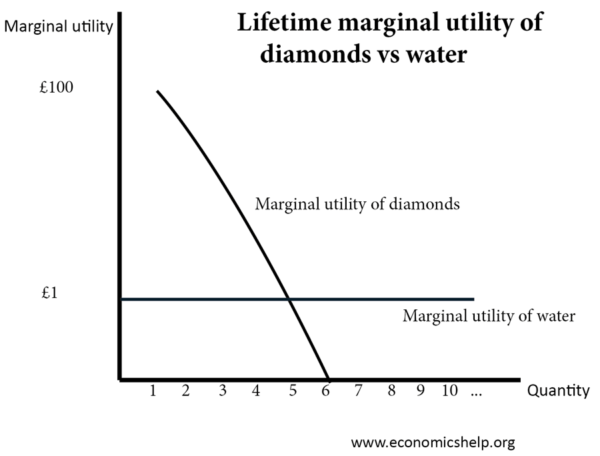Readers Question: Why are Diamonds very expensive and water very cheap, when diamonds are useless, but water is essential for life?
The first question is – how many diamonds do you buy during your lifetime? How often do you consume water?
The average person will buy maybe 2 or 3 – possibly six diamonds in a lifetime. – Perhaps one as a wedding ring and one for a 25 year wedding anniversary. There is a high marginal benefit (utility) of buying your wife a diamond for her wedding. True love is priceless, but, diamonds don’t do any harm to a relationship.
However, if you bought a second diamond a week after the wedding, this would have a significantly lower marginal benefit. The diamond wedding ring is special because it is a one-off. If you buy a diamond every week these extra diamonds give little if any benefit. Therefore, we are willing to spend so much on diamonds because we only consume a very small number.
However, water is very different, we buy water today, but, we need to keep buying it every day for the rest of our life. Luckily the supply of water is vast, meaning that it can be supplied at a very low price.
Water is cheap at the margin, and therefore cheap to buy. But, the total utility of water is much higher than the total utility of diamonds. The difference is the quantity purchased and availability of supply.
The difference between marginal utility and total utility
- The marginal utility of one diamond may be £100. But, you may only want to buy two in your lifetime. In this case, the total utility of diamonds is £200.
- The marginal utility of one bottle of water may be £1. But, in your lifetime, you may buy 5,000. In this case, the total utility of water is £5,000.
- Therefore, the total utility of water is greater than diamonds – even though diamonds are more expensive.
Related

